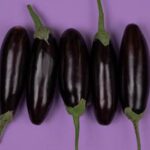Raccoons are notorious for causing mischief in vegetable gardens, often leaving behind a trail of destruction. These clever and resourceful creatures have a knack for finding their way into gardens, wreaking havoc on carefully cultivated plants and crops. The attraction of raccoons to vegetable gardens lies in the abundance of food and shelter they provide. Understanding the impact of raccoons on vegetable gardens is crucial for anyone looking to protect their harvest from these persistent intruders.
Raccoons are attracted to vegetable gardens not only for the readily available food but also for the shelter and protection they offer. Their presence can lead to significant damage to crops, resulting in frustration and disappointment for gardeners. Identifying raccoons and understanding their behavior is essential in effectively preventing and addressing their impact on vegetable gardens.
In this article, we will delve into the issue of raccoons invading vegetable gardens, explore why raccoons are attracted to these areas, and discuss the impact of raccoons on vegetable gardens. Additionally, we will provide insights into identifying raccoons, strategies for prevention and protection, tips on growing raccoon-resistant vegetables, humane removal options, creating a balanced environment where coexistence with wildlife is possible, as well as managing raccoon damage.
With this comprehensive guide, readers will be equipped with the knowledge needed to safeguard their vegetable gardens from pesky raccoon intrusions.
Identifying Raccoons
Raccoons are known for their distinct appearance and behavior, making them easy to identify. They are medium-sized mammals with grayish-brown fur, a bushy ringed tail, and a black “mask” of fur around their eyes. Raccoons also have dexterous front paws that allow them to grasp and manipulate objects, making them skilled at getting into vegetable gardens. Signs of raccoon activity in vegetable gardens may include overturned or damaged plants, as well as tracks or scat left behind.
Understanding raccoon behavior is crucial when it comes to identifying these animals in vegetable gardens. Raccoons are primarily nocturnal creatures, so sightings during the day can be rare. They are omnivores and have a varied diet that includes fruits, nuts, insects, small animals, and yes, vegetables from gardens. Their adaptability and intelligence make them adept at finding ways to access food sources such as vegetable patches.
To help gardeners identify raccoons in their area, here are some key characteristics and signs of raccoon activity:
- Grayish-brown fur with a distinctive mask-like pattern around the eyes
- Bushy ringed tail
- Nocturnal behavior
- Track marks or scat near the garden
- Overturned or damaged plants
Being able to recognize raccoons and their activities is the first step in effectively addressing the issue of these animals invading vegetable gardens. Once identified, gardeners can then take steps to prevent and protect their crops from raccoon damage.
Prevention and Protection
Raccoons are notorious for invading vegetable gardens in search of food, causing damage to crops and frustrating gardeners. It’s important to take proactive measures to prevent raccoons from accessing vegetable gardens and protect the hard work put into growing a variety of vegetables.
Here are some effective ways to prevent raccoons from infiltrating vegetable gardens:
1. Physical barriers: Installing fencing around the perimeter of the garden can serve as an effective deterrent against raccoons. Use wire mesh or electric fencing to create a barrier that is difficult for raccoons to breach.
2. Natural repellents: There are several natural substances that can be used to repel raccoons from vegetable gardens, such as predator urine or garlic and chili pepper sprays. These odors are unpleasant for raccoons and can deter them from entering the garden.
3. Tips for protecting vegetable gardens: Keep garbage cans tightly sealed to avoid attracting raccoons, remove any fallen fruit or vegetables from the ground, and regularly monitor the garden for signs of raccoon activity, such as footprints or droppings.
By implementing these prevention and protection methods, it is possible to minimize the risk of raccoons causing damage in vegetable gardens and create a more harmonious environment for both humans and wildlife.
Raccoon-Resistant Vegetables
Types of Vegetables That Are Less Attractive to Raccoons
When it comes to protecting your vegetable garden from raccoons, choosing the right plants can make a significant difference. While raccoons are notorious for their love of sweet corn and ripe tomatoes, there are several vegetables that they tend to avoid.
Some examples of raccoon-resistant vegetables include root crops like carrots, beets, and potatoes, as well as leafy greens such as kale and Swiss chard. Additionally, herbs like rosemary, thyme, and oregano are less likely to attract raccoons due to their strong scents.
Techniques for Growing Raccoon-Resistant Vegetables
In addition to carefully selecting the types of vegetables you plant, there are also certain techniques that can help make your garden less appealing to raccoons. For example, planting dense crops or using companion planting techniques where multiple types of vegetables are grown together can confuse and deter raccoons from easily accessing desirable plants. Raised bed gardening can also be effective in keeping raccoons at bay since it creates an additional barrier for these animals.
How to Choose the Right Plants to Discourage Raccoons
When planning your vegetable garden, it’s important to consider the factors that make certain plants more or less attractive to raccoons. Choosing vegetables with tough skins or strong odors can help discourage these animals from invading your garden.
Additionally, opting for varieties that mature earlier in the season may decrease the likelihood of attracting raccoons when they are actively seeking out food sources. By strategically selecting the right plants and implementing smart gardening practices, you can significantly reduce the risk of damage caused by raccoons in your vegetable garden.
Humane Removal
Dealing with raccoons in vegetable gardens can be a frustrating experience for many gardeners. While these creatures may look cute and harmless, they can cause a significant amount of damage to crops if left unchecked. When it comes to removing raccoons from vegetable gardens, it is important to do so in a humane and ethical manner.
One option for safely removing raccoons from vegetable gardens is to use live traps. These traps allow you to capture the raccoons without causing them harm and then release them back into the wild away from your garden. It is crucial to check local regulations and guidelines before setting up traps as certain areas may have specific rules regarding relocating wildlife.
Another important aspect of humane removal is understanding the importance of coexistence with wildlife. Raccoons are just trying to survive, and finding food in vegetable gardens may be a matter of survival for them. By respecting their role in the ecosystem and taking steps to minimize conflict, it is possible to peacefully share space with raccoons while protecting your garden.
Lastly, if dealing with raccoons becomes overwhelming or too challenging, seeking professional assistance for raccoon removal can be a viable option. Wildlife experts have the knowledge and experience to manage raccoon activity in a safe and responsible manner, ensuring the well-being of both the animals and your vegetable garden.
| Humane Removal Methods | Benefits |
|---|---|
| Live traps | Allows for safe capture and release of raccoons |
| Respectful coexistence | Promotes understanding of wildlife’s role in the ecosystem |
| Professional assistance | Ensures responsible management of raccoon activity |
Creating a Raccoon-Friendly Environment
Understanding Raccoon Behavior
Raccoons are attracted to vegetable gardens because they offer an easily accessible source of food and water. These nocturnal creatures are known for their resourcefulness and adaptability, making it important for gardeners to understand their behavior in order to prevent intrusion.
Raccoons are opportunistic feeders, so they will take advantage of any available food source, including ripe fruits and vegetables in gardens. By recognizing patterns of raccoon activity, such as overturned plants or missing produce, gardeners can take proactive measures to discourage raccoons from visiting their gardens.
Providing Alternative Food Sources for Raccoons
One way to make vegetable gardens less appealing to raccoons is by providing alternative food sources elsewhere on the property. Consider leaving out small amounts of pet food or compost piles away from the garden area to attract raccoons away from the vegetables. By offering a more desirable option, such as birdseed or fruits, in a designated spot, gardeners may be able to redirect raccoons away from their prized produce.
Balancing Coexistence With Wildlife in the Garden
Ultimately, it is important to find ways to coexist with wildlife while still protecting vegetable gardens from damage. This may involve accepting some level of interaction with raccoons in the yard and taking measures to minimize potential conflicts.
By understanding and respecting the natural behaviors of raccoons, gardeners can create a harmonious environment that benefits both humans and wildlife. Additionally, utilizing humane removal methods when necessary and implementing preventative strategies can help maintain a balance between preserving vegetable gardens and respecting the presence of raccoons in the ecosystem.
Managing Raccoon Damage
Raccoons are known to be a common nuisance when it comes to vegetable gardens. Their tendency to dig, forage, and feast on the produce in gardens can cause significant damage. Managing raccoon damage is an important aspect of preserving the integrity of a vegetable garden and ensuring a bountiful harvest.
When raccoons invade a vegetable garden, they can cause extensive damage by uprooting plants, overturning soil, and munching on fruits and vegetables. Signs of raccoon activity in a garden include broken stalks, holes dug in the ground, and partially eaten produce. Identifying these signs early on is crucial in taking swift action to prevent further damage.
One way to manage raccoon damage is by repairing and restoring the affected areas of the garden. This may involve replanting damaged vegetables, filling in holes dug by raccoons, and reinforcing any protective barriers that may have been compromised. In addition to this, steps should be taken to prevent future raccoon activity through the use of deterrents or other protective measures such as fencing or netting.
| Raccoon Damage | Management Techniques |
|---|---|
| Digging up plants | Replanting damaged vegetables and reinforcing barriers |
| Eating produce | Using natural deterrents such as predator urine or motion-activated sprinklers |
| Overturning soil | Filling in holes and securing protective barriers |
Conclusion
In conclusion, the issue of raccoons invading vegetable gardens is a common concern for many gardeners. Raccoons are attracted to vegetable gardens due to the abundance of food and water, making it essential for gardeners to take proactive measures in protecting their crops. The impact of raccoons on vegetable gardens can be significant, resulting in damage to plants and frustration for gardeners.
Identifying raccoons and understanding their behavior is crucial in effectively preventing and protecting vegetable gardens from these pests. By implementing physical barriers, natural repellents, and selecting raccoon-resistant vegetables, gardeners can minimize the risk of raccoon activity in their gardens. Additionally, creating a raccoon-friendly environment by providing alternative food sources can discourage raccoons from targeting vegetable gardens.
It is important for gardeners to utilize humane methods for dealing with raccoons and seek professional assistance when necessary. By managing raccoon damage and taking steps to prevent future incidents, gardeners can restore their vegetable gardens and maintain a harmonious coexistence with wildlife.
Overall, it is imperative for readers to take action in safeguarding their vegetable gardens from raccoons while respecting the presence of these animals in the natural ecosystem. By implementing preventive measures and exploring coexistence strategies, gardeners can enjoy thriving vegetable gardens while minimizing conflicts with raccoons.
Frequently Asked Questions
Will Raccoons Eat My Vegetable Garden?
Raccoons are opportunistic feeders and may eat vegetables from your garden, especially if they are hungry or attracted by the smell. To prevent this, consider installing fencing or using repellents to deter them.
How Do I Keep Raccoons Off My Tomato Plants?
Keeping raccoons off tomato plants can be challenging but there are a few strategies you can try. Use physical barriers like wire cages or netting to protect the plants. Applying commercial or homemade repellents may also help keep raccoons away.
Do Raccoons Eat Tomato Plants?
Raccoons have been known to eat ripe tomatoes and damage tomato plants while foraging for food. They are omnivorous and their diet can include both plants and animals, so it’s important to take steps to protect your tomato plants from these pests.

If you’re looking to get into vegetable gardening, or are just looking for some tips on how to make your current garden better, then you’ve come to the right place! My name is Ethel and I have been gardening for years. In this blog, I’m going to share with you some of my best tips on how to create a successful vegetable garden.





